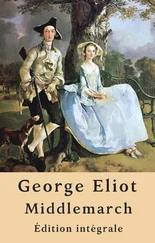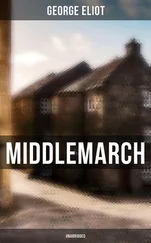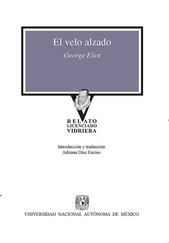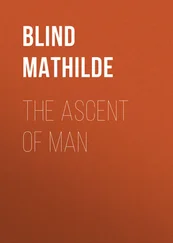Mathilde Blind - George Eliot
Здесь есть возможность читать онлайн «Mathilde Blind - George Eliot» — ознакомительный отрывок электронной книги совершенно бесплатно, а после прочтения отрывка купить полную версию. В некоторых случаях можно слушать аудио, скачать через торрент в формате fb2 и присутствует краткое содержание. ISBN: , Жанр: foreign_antique, foreign_prose, Биографии и Мемуары, на английском языке. Описание произведения, (предисловие) а так же отзывы посетителей доступны на портале библиотеки ЛибКат.
- Название:George Eliot
- Автор:
- Жанр:
- Год:неизвестен
- ISBN:http://www.gutenberg.org/ebooks/36847
- Рейтинг книги:3 / 5. Голосов: 1
-
Избранное:Добавить в избранное
- Отзывы:
-
Ваша оценка:
- 60
- 1
- 2
- 3
- 4
- 5
George Eliot: краткое содержание, описание и аннотация
Предлагаем к чтению аннотацию, описание, краткое содержание или предисловие (зависит от того, что написал сам автор книги «George Eliot»). Если вы не нашли необходимую информацию о книге — напишите в комментариях, мы постараемся отыскать её.
George Eliot — читать онлайн ознакомительный отрывок
Ниже представлен текст книги, разбитый по страницам. Система сохранения места последней прочитанной страницы, позволяет с удобством читать онлайн бесплатно книгу «George Eliot», без необходимости каждый раз заново искать на чём Вы остановились. Поставьте закладку, и сможете в любой момент перейти на страницу, на которой закончили чтение.
Интервал:
Закладка:
"One day my brother left me in high charge
To mind the rod, while he went seeking bait,
And bade me, when I saw a nearing barge,
Snatch out the line, lest he should come too late.
Proud of the task I watched with all my might
For one whole minute, till my eyes grew wide,
Till sky and earth took on a new strange light
And seemed a dream-world floating on some tide.
A fair pavilioned boat for me alone,
Bearing me onward through the vast unknown.
But sudden came the barge's pitch-black prow,
Nearer and angrier came my brother's cry,
And all my soul was quivering fear, when lo!
Upon the imperilled line, suspended high,
A silver perch! My guilt that won the prey
Now turned to merit, had a guerdon rich
Of hugs and praises, and made merry play
Until my triumph reached its highest pitch
When all at home were told the wondrous feat,
And how the little sister had fished well.
In secret, though my fortune tasted sweet,
I wondered why this happiness befell.
'The little lass had luck,' the gardener said;
And so I learned, luck was to glory wed."
Unlike Maggie, however, little Mary Ann was as good a hand at fishing as her brother, only differing from him in not liking to put the worms on the hooks.
Another incident taken from real life, if somewhat magnified, is the adventure with the gipsies. For the prototype of Maggie also fell among these marauding vagrants, and was detained a little time among them. Whether she also proposed to instruct the gipsies and to gain great influence over them by teaching them something about "geography" and "Columbus," does not transpire. But, indeed, most of Maggie's early experiences are autobiographic, down to such facts as her father telling her to rub her "turnip" cheeks against Sally's to get a little bloom, and to cutting off one side of her hair in a passion. At a very early age Mary Ann and her brother were sent to the village free school at Colton, in the parish of Griff, a not unusual custom in those days, when the means of tuition for little children were much more difficult to procure than now. There are still old men living who used to sit on the same form with little Mary Ann Evans learning her A, B, C, and a certain William Jacques (the original of the delightfully comic Bob Jakins of fiction) remembers carrying her pick-a-back on the lawn in front of her father's house.
As the brother and sister grew older they saw less of each other, Mary Ann being sent to a school at Nuneaton, kept by Miss Lewis, for whom she retained an affectionate regard long years afterwards. About the same time she taught at a Sunday-school, in a little cottage adjoining her father's house. When she was twelve years old, being then, in the words of a neighbour, who occasionally called at Griff House, "a queer, three-cornered, awkward girl," who sat in corners and shyly watched her elders, she was placed as boarder with the Misses Franklin at Coventry. This school, then in high repute throughout the neighbourhood, was kept by two sisters, of whom the younger, Miss Rebecca Franklin, was a woman of unusual attainments and ladylike culture, although not without a certain taint of Johnsonian affectation. She seems to have thoroughly grounded Miss Evans in a sound English education, laying great stress in particular on the propriety of a precise and careful manner of speaking and reading. She herself always made a point of expressing herself in studied sentences, and on one occasion, when a friend had called to ask after a dying relative, she actually kept the servant waiting till she had framed an appropriately worded message. Miss Evans, in whose family a broad provincial dialect was spoken, soon acquired Miss Rebecca's carefully elaborated speech, and, not content with that, she might be said to have created a new voice for herself. In later life every one who knew her was struck by the sweetness of her voice, and the finished construction of every sentence, as it fell from her lips; for by that time the acquired habit had become second nature, and blended harmoniously with her entire personality. But in those early days the artificial effort at perfect propriety of expression was still perceptible, and produced an impression of affectation, perhaps reflecting that of her revered instructress. It is also believed that some of the beauty of her intonation in reading English poetry was owing to the same early influence.
Mary Ann, or Marian as she came afterwards to be called, remained about three years with the Misses Franklin. She stood aloof from the other pupils, and one of her schoolfellows, Miss Bradley Jenkins, says that she was quite as remarkable in those early days as after she had acquired fame. She seems to have strangely impressed the imagination of the latter, who, figuratively speaking, looked up at her "as at a mountain." There was never anything of the schoolgirl about Miss Evans, for, even at that early age, she had the manners and appearance of a grave, staid woman; so much so, that a stranger, happening to call one day, mistook this girl of thirteen for one of the Misses Franklin, who were then middle-aged women. In this, also, there is a certain resemblance to Maggie Tulliver, who, at the age of thirteen, is described as looking already like a woman. English composition, French and German, were some of the studies to which much time and attention were devoted. Being greatly in advance of the other pupils in the knowledge of French, Miss Evans and Miss Jenkins were taken out of the general class and set to study it together; but, though the two girls were thus associated in a closer fellowship, no real intimacy apparently followed from it. The latter watched the future "George Eliot" with intense interest, but always felt as if in the presence of a superior, though socially their positions were much on a par. This haunting sense of superiority precluded the growth of any closer friendship between the two fellow-pupils. All the more startling was it to the admiring schoolgirl, when one day, on using Marian Evans's German dictionary, she saw scribbled on its blank page some verses, evidently original, expressing rather sentimentally a yearning for love and sympathy. Under this granite-like exterior, then, there was beating a heart that passionately craved for human tenderness and companionship!
Inner solitude was no doubt the portion of George Eliot in those days. She must already have had a dim consciousness of unusual power, to a great extent isolating her from the girls of her own age, absorbed as they were in quite other feelings and ideas. Strong religious convictions pervaded her life at this period, and in the fervid faith and spiritual exaltation which characterise Maggie's girlhood, we have a very faithful picture of the future novelist's own state of mind. Passing through many stages of religious thought, she was first simple Church of England, then Low Church, then "Anti-Supernatural." In this latter character she wore an "Anti-Supernatural" cap, in which, so says an early friend, "her plain features looked all the plainer." But her nature was a mixed one, as indeed is Maggie's too, and conflicting tendencies and inclinations pulled her, no doubt, in different directions. The self-renouncing impulses of one moment were checkmated at another by an eager desire for approbation and distinguishing pre-eminence; and a piety verging on asceticism did not exclude, on the other hand, a very clear perception of the advantages and desirability of good birth, wealth, and high social position. Like her own charming Esther in 'Felix Holt,' she had a fine sense, amid somewhat anomalous surroundings, of the highest refinements and delicacies which are supposed to be the natural attributes of people of rank and fashion. She even shared with the above-mentioned heroine certain girlish vanities and weaknesses, such as liking to have all things about her person as elegant as possible.
Читать дальшеИнтервал:
Закладка:
Похожие книги на «George Eliot»
Представляем Вашему вниманию похожие книги на «George Eliot» списком для выбора. Мы отобрали схожую по названию и смыслу литературу в надежде предоставить читателям больше вариантов отыскать новые, интересные, ещё непрочитанные произведения.
Обсуждение, отзывы о книге «George Eliot» и просто собственные мнения читателей. Оставьте ваши комментарии, напишите, что Вы думаете о произведении, его смысле или главных героях. Укажите что конкретно понравилось, а что нет, и почему Вы так считаете.












